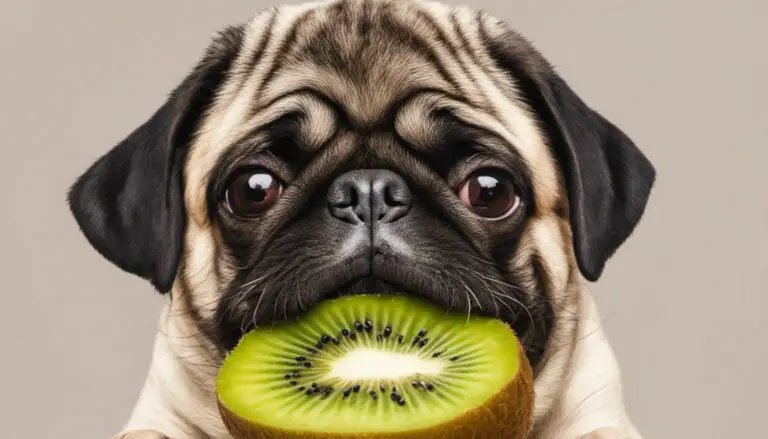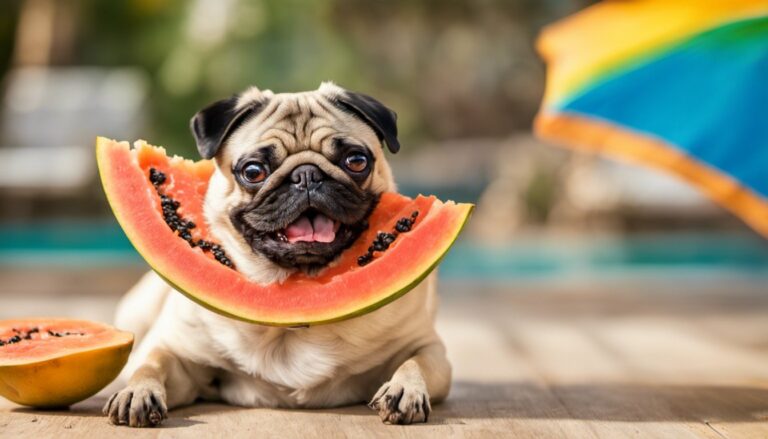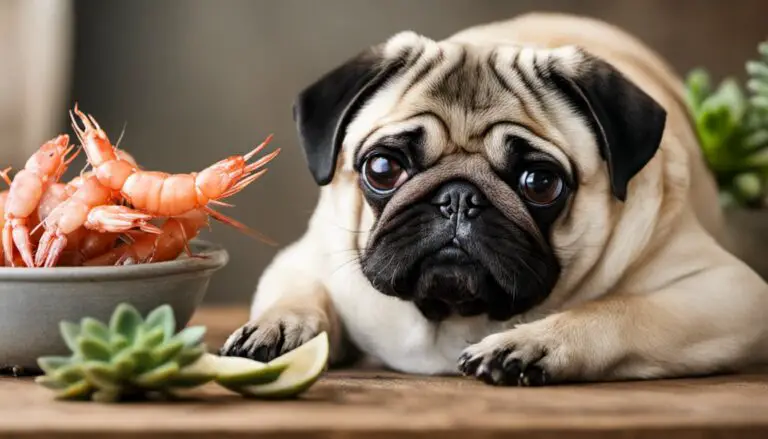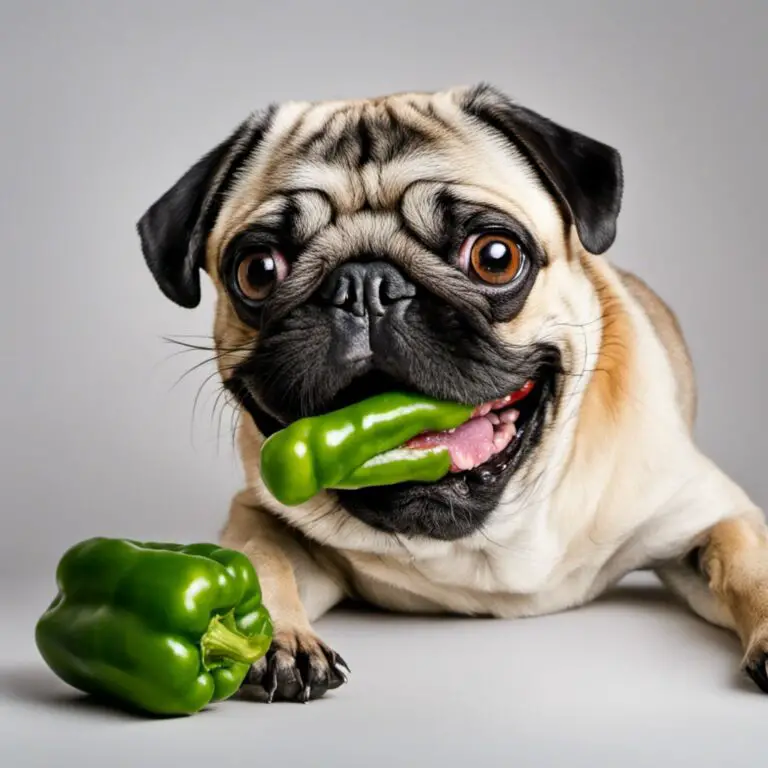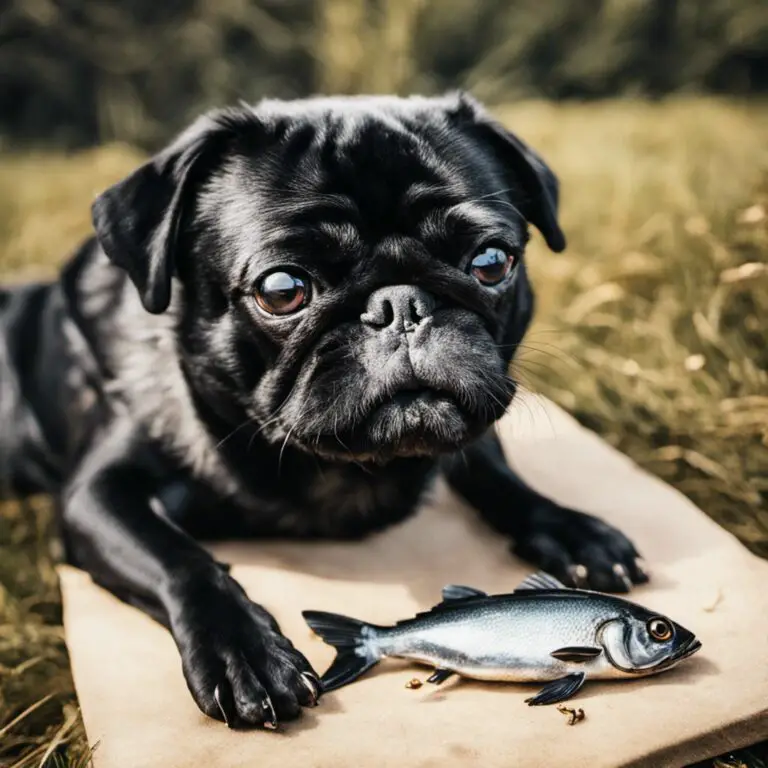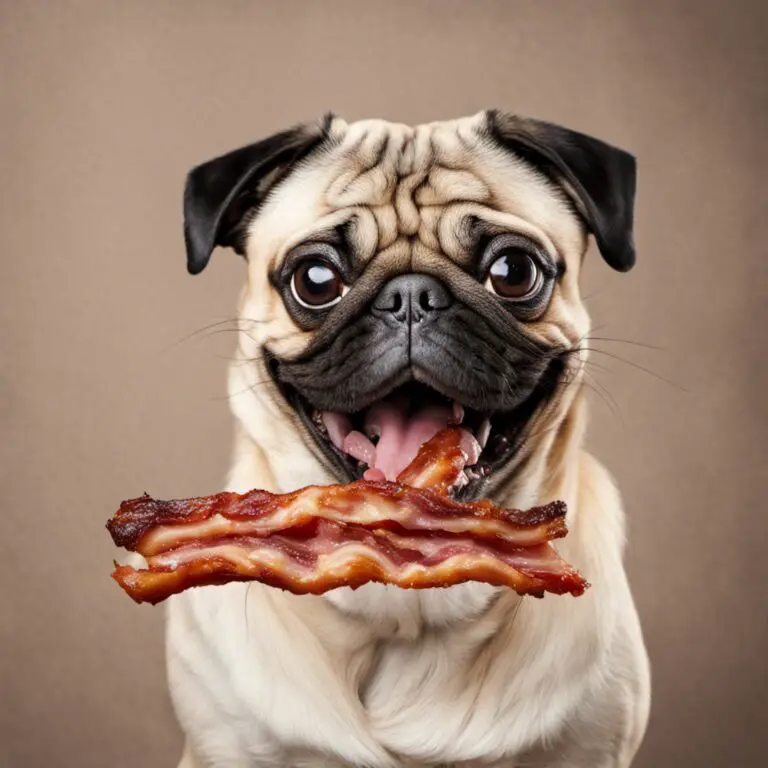Can Pugs Eat Cabbage? A Nutritional Insight for Pet Owners
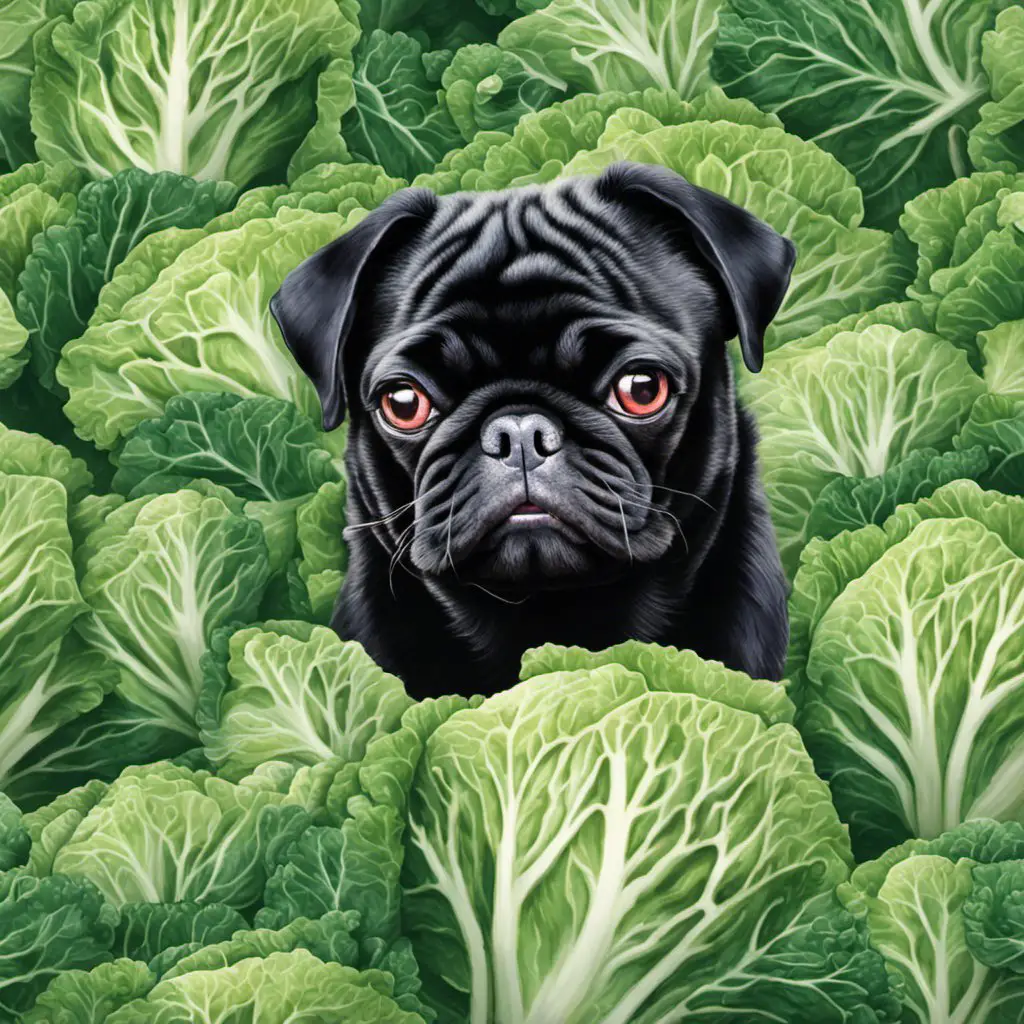
Can Pugs Eat Cabbage? Cabbage is a common ingredient found in human diets, but pet owners might wonder if it’s also safe for their pug to enjoy this cruciferous vegetable. The good news is that cabbage, along with other related vegetables like broccoli and cauliflower, can be consumed by dogs, including pugs. However, it’s essential to serve it in moderation and pay attention to your pet’s reaction to this new food addition.
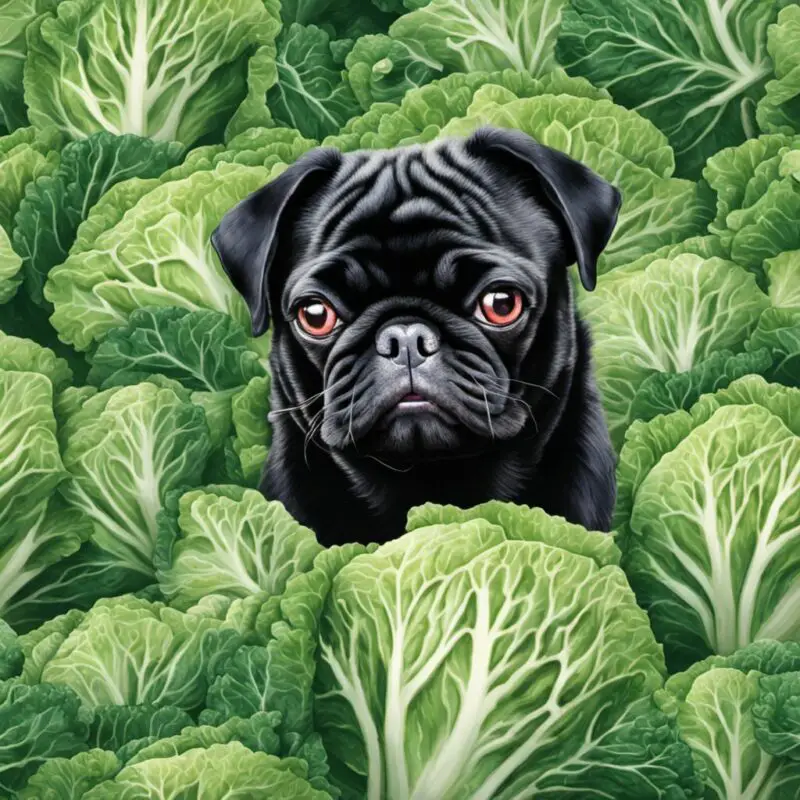
Introducing cabbage into a pug’s diet should be done slowly and cautiously, as the high fiber and water content might cause an upset stomach if consumed excessively. Additionally, it’s recommended to serve cooked cabbage instead of raw, as cooked vegetables are generally easier for dogs to digest and absorb nutrients.
Always monitor your pug’s behavior after feeding them cabbage, and stop serving if you notice any abnormal symptoms such as vomiting or diarrhea.
By considering these considerations and offering cabbage in controlled amounts, your pug can safely enjoy the benefits of this nutritious vegetable. Just remember to prioritize their overall diet and consult with a veterinarian if you’re unsure about introducing new foods to their meal plan.
Contents
Get The Free Food Eating Guide That Keeps My Pug Happy and Playful Even at 13 Years Old
100% Beginner Friendly & Lists Real Foods Your Pug Can Actually Eat!

Table of Contents
Understanding Pugs’ Dietary Needs
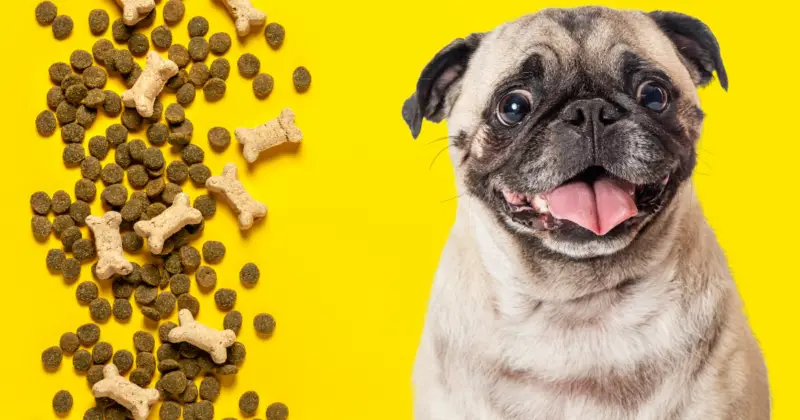
Pugs, like other dogs, are primarily carnivorous animals and require a diet that is rich in meat-based protein. However, they can also tolerate and benefit from certain fruits, vegetables, and whole grains, as they are considered omnivores.
A well-balanced diet for a pug should consist of animal protein sources such as chicken, beef, turkey, or fish. This provides the essential amino acids they need for proper growth and muscle development. Moreover, including a moderate amount of healthy fats in their diet, such as those found in fish or flaxseed oil, can help maintain their skin and coat health.
Regarding calories, pugs tend to gain weight easily, so it’s important to monitor their caloric intake. Each pug’s caloric needs may vary based on age, weight, activity level, and overall health. It is crucial to consult with a veterinarian to determine the appropriate amount of food and calories for your specific pug.
Incorporating fruits and vegetables into your pug’s diet can offer various nutrients, antioxidants, and fiber, which can contribute to their overall well-being. However, choosing the right types of produce is essential, as some can be toxic to dogs. For example, while pugs can enjoy cooked cabbage for its nutritional benefits, they should not be fed avocados containing a harmful toxin called persin.
Understanding and meeting your pug’s dietary needs can support their overall health and well-being, allowing them to lead a happy and active life.
Can Dogs Generally Eat Cabbage?
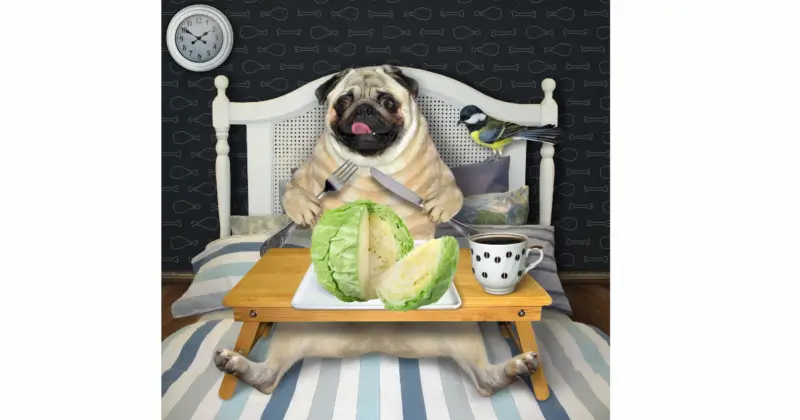
Cabbage is a heart-healthy vegetable that is popular among humans, and many pet owners might wonder if it is appropriate to share this nutritious food with their dogs. Good news – dogs can indeed eat cabbage! It is considered a safe and healthy addition to their diet when fed in moderation source.
This low-calorie vegetable contains essential nutrients, antioxidants, and vitamins that can benefit dogs. Other cruciferous vegetables like broccoli, cauliflower, and Brussels sprouts are also safe for dogs to consume, making them a great option for pet-friendly human food treats.
However, it is important to remember that introducing cabbage to your dog’s diet should be done slowly and in limited quantities. This is because the high fiber and water content found in cabbage can cause an upset stomach if your dog eats too much of it too quickly source. To avoid digestive issues, gradually increase the amount of cabbage your dog consumes over time, and avoid feeding them large amounts at once.
In addition to its nutritional benefits, cabbage can also be prepared in several ways, making it convenient to incorporate into your dog’s meal source. You can steam, boil, or even serve it raw; however, avoiding adding any extra seasoning is essential, as certain spices and ingredients may be harmful to dogs.
In summary, cabbage is a safe and nutritious choice for dogs when properly introduced and fed in moderation. Its low-calorie content and numerous health benefits make it a great supplement to your dog’s regular diet, providing essential nutrients while keeping them healthy and satisfied.
Health Benefits of Cabbage for Pugs
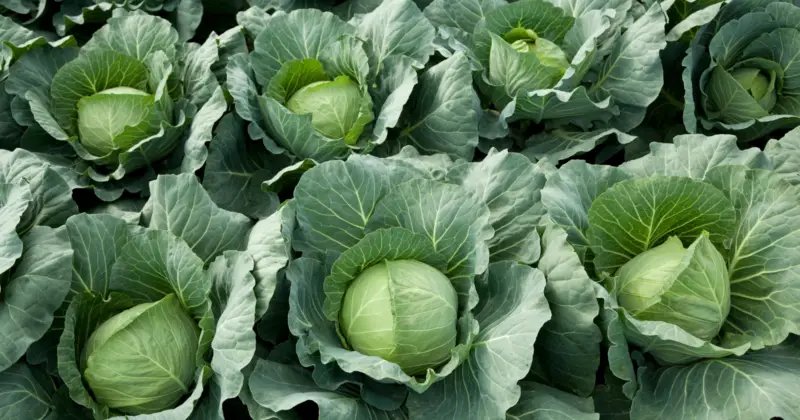
Cabbage is a nutrient-rich vegetable that can provide various health benefits for Pugs. It is packed with essential vitamins and minerals, such as potassium, vitamin C, and fiber, which contribute to your dog’s overall well-being.
One of the primary benefits of cabbage is its high antioxidant content. Antioxidants help remove free radicals, damaging cells and leading to serious health issues such as cancer, heart disease, and other conditions. Including cabbage in your Pug’s diet can help boost their immune system and protect their cells from harm.
In addition to antioxidants, cabbage is an excellent source of vitamin C, and vitamin K. Vitamin C supports the immune system, brain function, and eye health in dogs while aiding in iron absorption from food. Vitamin K, on the other hand, plays a crucial role in blood clotting and bone health.
Cabbages are also rich in fiber, which can help maintain your Pug’s digestive health. A diet high in fiber can help prevent constipation and may assist in weight management, as it provides a satiating effect without adding too many calories.
However, it is important to note that cabbage produces a large amount of gas, and some dogs may not tolerate excessive gas production well. Be cautious when introducing cabbage to your Pug’s diet, starting with small portions to ensure they can handle it.
In summary, feeding your Pug cabbage can provide them with a range of valuable nutrients, including potassium, vitamins C and K, antioxidants, and fiber. When fed in moderation, this nutritious vegetable can contribute to your beloved pet’s overall health and wellness.
Dangerous Foods Your Dog Should Never Eat
Is Cabbage Safe for Pugs?
Cabbage is a low-calorie vegetable that is high in fiber and offers a good source of potassium and other vitamins. It can be a healthy addition to a pug’s diet and also provide antioxidants that can help boost their immune system source.
However, it is important to remember that cabbage must be fed to pugs in moderation, as advised by Dr. Jerry Klein, Chief Veterinary Officer for the AKC source. It is essential to know that overfeeding pugs with cabbage can lead to digestive issues.
It is generally safe if your pug has eaten cabbage before with no adverse reactions. Cooked cabbage is preferred over raw cabbage, as it is easier for pugs to digest and absorb nutrients more fully source. However, keep a close eye on your pet for any abnormal symptoms, such as diarrhea or vomiting, and stop giving them cabbage if they occur.
It is also worth noting that pugs, like all dogs, are omnivores and can digest both plants and meat sources. Thus, while cabbage can be a beneficial part of their diet, it should not replace other essential nutrients that pugs need to maintain good health.
In conclusion, cabbage can be safe for pugs if fed in moderation and given adequate attention to any potential health concerns. It is important to monitor your pet’s reaction to this vegetable and consider providing cooked cabbage instead of raw to ensure optimal digestion and absorption of nutrients.
Possible Side Effects of Cabbage in Pugs
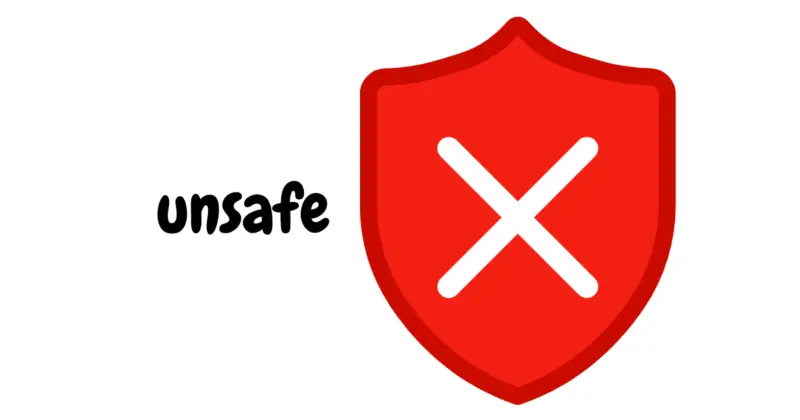
Cabbage can be a nutritious addition to a dog’s diet, but it’s important to be aware of its potential side effects on Pugs. One of the most common side effects of feeding cabbage to Pugs is the production of gas, which may lead to discomfort and bloating1. This can result in a stinky environment and discomfort for your beloved pet.
Another possible side effect of feeding cabbage to Pugs is diarrhea. Some dogs have more sensitive stomachs than others, and the introduction of cabbage to their diet might cause an upset stomach2. If you notice that your Pug is experiencing frequent diarrhea after eating cabbage, it might be best to stop feeding it to them and consult with your veterinarian.
In some cases, dogs may also experience vomiting when consuming cabbage3. While this is less common, keeping an eye on your Pug and monitoring any changes in their behavior or digestive health after introducing cabbage to their diet is crucial.
Choking is another concern when feeding cabbage to Pugs, particularly if the vegetable is given raw or in large pieces. Pugs are a brachycephalic breed, meaning they have short, flat faces and may have difficulties swallowing large pieces of food. To ensure your Pug’s safety, it’s best to chop the cabbage into small, bite-sized pieces and consider cooking it to make it easier to chew and digest4.
In conclusion, while cabbage can offer some health benefits for Pugs, it’s essential to be mindful of the potential side effects it can cause. By gradually introducing cabbage into their diet and monitoring their reaction, you can determine if it’s a suitable addition to their meals. If you notice any discomfort or other side effects, consult your veterinarian for guidance.
Feeding Cabbage to Pugs: The Right Way
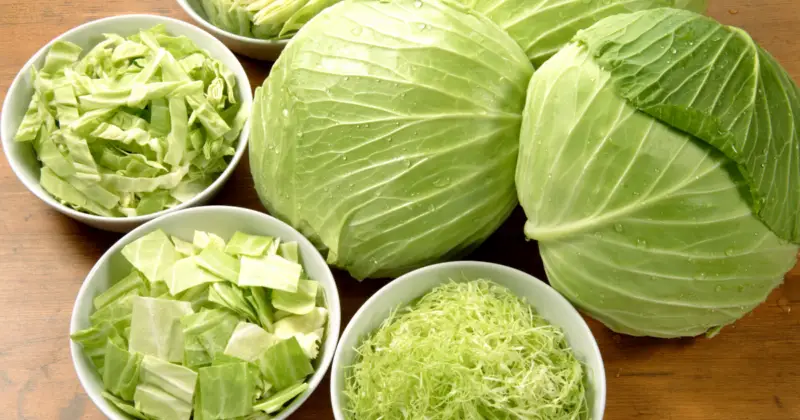
Feeding cabbage to pugs can be a healthy and delicious treat for your furry friend. However, it’s essential to introduce it in moderation and ensure it’s prepared correctly to avoid any potential digestive issues.
When introducing cabbage to your pug’s diet, start with a small, bite-sized piece to assess any adverse reactions. As cabbage may cause gas in some dogs, observe your pug closely. If they tolerate it well, consider providing it as an occasional treat. Remember to always choose fresh or frozen cabbage without any additives or seasonings.
Cooking cabbage before giving it to your pug is beneficial. Cooked vegetables are easier for dogs to digest and absorb nutrients, making cooked cabbage a better option than raw. Aim for steaming or lightly boiling the cabbage to maintain its nutritional value. This method will help retain the vitamins and minerals essential for your pug’s health.
Remember that moderation is key as you continue to feed cabbage to your pug as an occasional treat. Too much cabbage in their diet may lead to bloating or excessive gas, causing discomfort. Balance their intake with other canine-friendly fruits and veggies for dietary variety and optimal health.
In summary, feeding cabbage to pugs can be a nourishing addition to their diet when offered in moderation and properly prepared. By introducing it slowly, ensuring it’s cooked appropriately, and balancing it with other dog-friendly food options, you can help support your pug’s overall well-being.
FAQs: Can Pugs Eat Cabbage

Can pugs have cooked cabbage?
Yes, pugs can have cooked cabbage. Cooking the cabbage can make it easier for your pug to digest. Make sure not to add any harmful ingredients like garlic or excess salt when cooking the cabbage for your pug. It is essential to start slow and monitor your pug’s reactions when introducing cooked cabbage into their diet.
Is raw cabbage safe for pugs?
Raw cabbage is safe for pugs to eat as well. Although, it’s a good idea to chop the cabbage into small pieces before serving it to your pug. Like with cooked cabbage, introduce raw cabbage gradually to avoid any stomach issues.
Will cabbage cause stomach issues in pugs?
Cabbage contains high fiber and water content, which can cause an upset stomach if your pug consumes too much of it. It is important to start with small quantities and observe your pug’s reaction to this new food. If your pug is prone to stomach issues, consult with your veterinarian before adding cabbage to their diet.
Are there benefits to feeding pugs cabbage?
Feeding pugs cabbage can provide various nutrients, such as vitamins and minerals. Cabbage is a low-calorie food that can contribute to your pug’s overall health. However, it is vital to balance their diet with other nutritious food items to maintain their health.
How should cabbage be served to pugs?
Cabbage can be served to pugs either raw or cooked. Make sure to chop it into small pieces and remove any stalks before serving it to your pug. When cooking cabbage, avoid using harmful ingredients like garlic, onions, or excess salt. Monitor your pug’s reaction when introducing cabbage into their diet, and adjust the quantity if needed.
Can pugs consume cabbage alongside other vegetables?
Yes, pugs can consume cabbage alongside other vegetables. It is important to ensure that the vegetables you include in their diet are safe for dogs. Certain vegetables, like broccoli, cauliflower, and Brussels sprouts, can be included, but always in moderation. Remember to consult with your veterinarian before making any significant changes to your pug’s diet.

